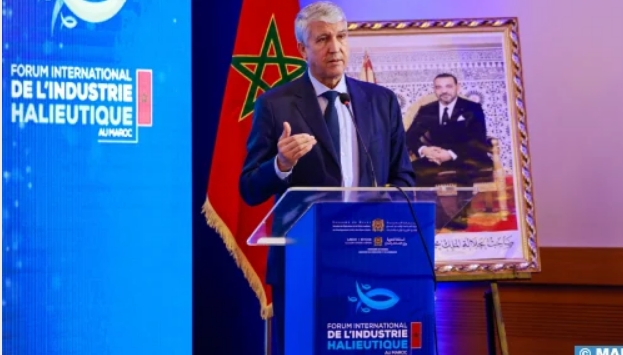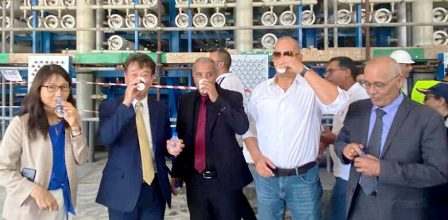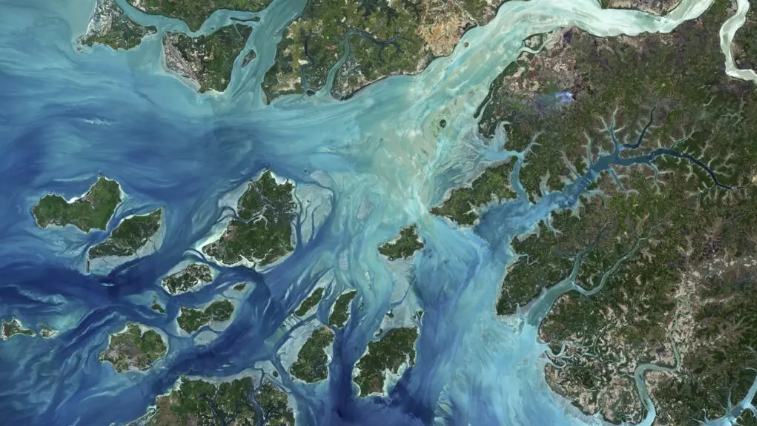The fishing sector is the backbone of the development of the national blue economy, said Wednesday in Casablanca, the Minister of Agriculture, Maritime Fisheries, Rural Development and Water and Forests, Mohamed Sadiki.
Speaking at the opening of the third edition of the International Fisheries Industry Forum in Morocco, held under the theme “Collaboration for Sustainability: Crossed Perspectives of Research, Development, and the Private Sector”, Mr. Sadiki stressed that the fishing industry also plays an essential role in the transition to a more sustainable approach, calling on companies in the sector to engage more in responsible practices, reduce their ecological footprint and actively contribute to conservation. marine ecosystems.
“Morocco, rich in its extensive coastline and its diversified marine resources, exercises crucial importance in the global and regional fishing sector, particularly in Africa,” he continued, specifying that despite the efforts undertaken, this natural wealth is facing growing challenges, including overfishing, pollution of the marine ecosystem, the effects of climate change, and the high cost of energy products and inputs.
In this sense, the minister emphasized the relevance of this type of meeting in monitoring and feeding into programs and governance actions in the sector, in the face of all of these challenges and the current marked context. by the amplification of the deterioration of resources and a rapid evolution of environmental threats.
Mr. Sadiki also highlighted the impact of the fisheries sector development strategy which made it possible to “develop and secure the enormous potential of the country, while contributing sustainably to the economic and social growth of the sector”.
For his part, the president of the National Federation of Industries for the processing and valorization of fishing products (FENIP), Hassan Sentissi El Idrissi, stressed that to overcome the obstacles in the sector, it is essential to strengthen collaboration with the professionals from the fishing and processing industry, noting that this increased cooperation makes it possible to share knowledge, align management practices with realities on the ground and above all to ensure that the measures taken are both practical and beneficial for all stakeholders involved.
“Moreover, faced with an unprecedented situation, it is imperative to rethink our economic model to improve the performance of our sector and open up new horizons and perspectives,” he said.
Regarding financing challenges, Mr. Sentissi El Idrissi returned to the need to consider the establishment of an adapted maritime credit, specifying that this financial system would be dedicated to supporting investments in innovative and sustainable technologies, and to facilitate access to the capital needed to modernize and make our industry more resilient and competitive.
For his part, the representative of Swiss Import Promotion Program (SIPPO) in Morocco, Karim Haoud, highlighted the relevance of this event, welcoming the partnership of SIPPO with FENIP which made it possible to implement innovative initiatives, including the sustainability charter, as well as all actions linked to the digitalization and dematerialization of procedures.
Mr. Haoud also praised the remarkable efforts of all stakeholders, public and private, involved in the management of fisheries resources in Morocco, as well as their tireless commitments and their long-term vision essential to ensure the sustainability of marine ecosystems and the sustainability of fishing practices.
In turn, the international expert and consultant at SIPPO, Lahsen Ababouch, reviewed the main progress of the sector, specifying that the global demand for fishery products continues to increase, with growth in fishery production reaching approximately 223 million tonnes of products in 2022.
Organized by FENIP in partnership with SIPPO and the General Commission for Mediterranean Fisheries (CGPM), this Forum brings together major players in the fishing industry, as well as government representatives, researchers, private sector companies and international partners.
This edition aims to share the progress made by the Kingdom and other brotherly and friendly countries in the responsible exploitation and preservation of marine resources, in order to create a dynamic platform for exchanging the best experiences and knowledge necessary to meet the challenges sustainability and forge innovative solutions.




